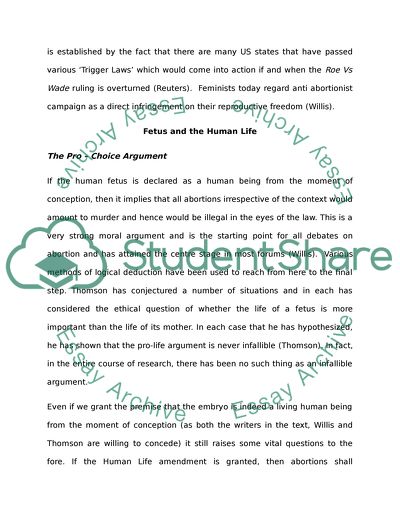Cite this document
(“Abortion Essay Example | Topics and Well Written Essays - 1500 words - 2”, n.d.)
Retrieved from https://studentshare.org/miscellaneous/1546628-abortion
Retrieved from https://studentshare.org/miscellaneous/1546628-abortion
(Abortion Essay Example | Topics and Well Written Essays - 1500 Words - 2)
https://studentshare.org/miscellaneous/1546628-abortion.
https://studentshare.org/miscellaneous/1546628-abortion.
“Abortion Essay Example | Topics and Well Written Essays - 1500 Words - 2”, n.d. https://studentshare.org/miscellaneous/1546628-abortion.


